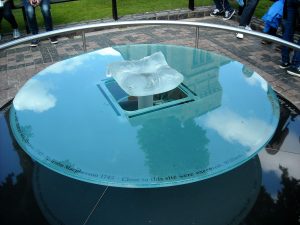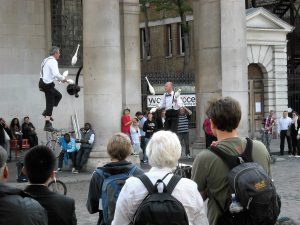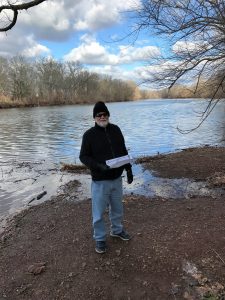Luke 4:38-44
But he said to them, “It is necessary for me to proclaim the good news about the kingdom of God to the other towns also, because I was sent for this purpose” (Luke 4:43 CSB)
At a later time in his ministry, Jesus referenced the many mighty works he did in towns like Capernaum (Matthew 11:20-25; cf. Luke 10:13-15). In our text we view three kinds of those miraculous signs. Here we see what the people of Nazareth wanted (4:23), yet what did the people of Capernaum no spiritual good. What we long for may not help us but only compound our troubles. The classic witticism about this is “There are two happy days in boat owner’s lives; the day they buy it and the day they sell.” You can plug in your own experience.
Sent by God, Jesus did what the Father directed him to do. Luke continues the account of that busy day in Capernaum. After the synagogue service was over, Jesus went with Simon Peter to his house. Jesus and Simon had met months earlier in Judea (John 1:40-42). Back in Galilee, Simon extended hospitality to Jesus, as he seems to have already become one of a growing number of Jesus’ disciples. On a human level, it was a difficult time to have Jesus as a guest, since Peter’s mother-in-law was ill with a fever. And Peter’s wife probably had her hands full with her mother rather ill. But our difficulties are God’s opportunities.
Jesus bent over her and rebuked the fever, and it left her (4:39 NIV). Can you picture Dr. Luke telling this story, thinking of his own bedside posture as he tried to help his patients? But Jesus was a physician with almighty power! He could rebuke a fever and make it leave, just as he had the evil spirit in the synagogue. The woman’s healing was immediate. No recovery period was needed when the fever was gone. She was able to get up and work at once. Notice that the Lord did not tell her to sit down and relax. She was healed and quite capable of immediate service. The Lord wants us to serve him and others.
At sunset when the Sabbath was over (the Jewish day ended and began at sunset), the excited people of Capernaum brought their afflicted family members and friends to Jesus to be healed. They had been spreading the news about Jesus everywhere (4:37), and a large crowd gathered at Peter’s house. Jesus healed people in different ways, sometimes just by speaking a word, even from a distance. Here, Jesus chose personal contact. He healed by laying his hands on them. This personal touch is in dramatic contrast with what he refused to do at Nazareth. It was not because they were better people. (See the references in the first paragraph, where Capernaum is unfavorably compared with Sodom in its spiritual receptiveness.) No, this is another example of sovereign mercy, and this one increasing their responsibility. Jesus tenderly healed these people, but they would not humbly bow before him in trust and thankfulness.
The Lord Jesus also cast out demons from several people. Evidently, the opposition by the spiritual forces of evil against Jesus was strong in this area. He did not avoid such encounters but faithfully carried out the work his Father gave him to do. Let us be strong in the Lord and his mighty power (Ephesians 6:10) and do the same. This is the hour for the church to arise out of her slumber and do what God has commissioned us to do, regardless of the hardened opposition we encounter. Jesus did not allow these evicted demons to talk; he did not their words to lead to wrong ideas about the meaning of his Messiahship.
Jesus continued faithful on the mission the Father had given him (4:42-44). After a glorious day of ministry, one that most preachers only dream of, Jesus went out alone to pray to his Father in heaven. He longed for solitary time with God. Do we? People were searching for Jesus; however, he had more on his agenda than to minister in one place. He had many places to go, and he had more to do than heal people. (Many of the prayers of the contemporary church are filled with urgent requests for healing; little is asked for spiritual concerns.) He knew that his primary mission at this time was to tell the good news of the kingdom of God, that God had arrived in his coming to bring salvation. For this reason, he moved on and kept on preaching.
We, Christ’s people, must get involved again in telling people the good news. We’re distracted by far too many temporary matters of this world and neglect the spiritual and the eternal. Can we say with integrity that we are his followers, if we fail to follow him?Grace and peace,
David

 Jonah 1:1-3
Jonah 1:1-3 And proclaim as you go, saying, ‘The kingdom of heaven is at hand’
And proclaim as you go, saying, ‘The kingdom of heaven is at hand’ Luke 9:57-62
Luke 9:57-62 2 Timothy 1:13
2 Timothy 1:13 1 Corinthians 12:3
1 Corinthians 12:3
 Psalm 10:1-11
Psalm 10:1-11 Psalm 9:1-2
Psalm 9:1-2